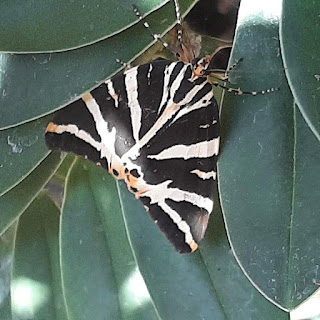Yesterday, on my way home, I overheard a little boy asking his sister (probably) a question as they clambered up the stairs of my local station. The question was 'What are veins for?' She thought about it a bit and he asked her some other questions such as 'Where are the veins in your body?'
The initial question was of interest to me mainly because I am lucky enough to have met and I continue to know a number of nurses through my work.
Nurses represent to me and I am sure the patients, the humanistic aspects of the health sector. They are the empathetic life support when people are suffering or concerned with their bodies and minds. They are both a balm for the illnesses that an individual may be suffering and for their minds.
Significantly, nurses take and they give. As human beings, we rarely give as much as we do to nurses. We give our life fluids, our blood and other substances. They take them and begin to process them, ensuring that doctors etc can perform any future curative or preventative miracles with the aid of pharmacists etc. Nurses also provide many of the treatments.
Nurses are to me the face of non-judgemental acceptance. When someone is drunk or stoned, potentially aggressive or seriously upset, they are there for them. They can be at risk, but they still place themselves potentially in harm's way to help another person.
During the early outbreaks of Covid, as the general public in the United Kingdom were clapping and banging kitchen utensils in honour of the NHS at various points, I was thinking of everyone working in the NHS but particularly the clinicians. I ended up during Covid being lucky enough to be redeployed to a wellbeing hub where I got to see a number of staff and to talk to them. Many of the nurses kept their own counsel, preferring to keep their feelings concerning Covid to themselves.
I regularly stand on the sidelines and wonder who cares for the nurses? Of course, significant others, families and friends but what about within their working environments? They are regularly underpaid, expected to pay for their own career progression and provide far too many hours of extra work, owing to principles of duty of care and their intrinsic giving natures.
I have seen nurses very stressed and I have wanted to hug them. All I can do in my capacity within the hierarchical structure of the NHS is to do what I would hopefully do with anyone. I try to empathise and would definitely gently suggest to the nurse that they give themselves a break. One cannot continue to give without looking after your own wellbeing. Human beings do not possess the ability to continue to help others without first satisfying our own needs.
But I also want to add that nurses are as varied as any other member of the healthcare profession. Their characteristics and approach defined by their humanity, training and situation. Not all nurses have to demonstratively convey their respect and love for the patients in an obvious way. Sometimes, detachment is more necessary, providing the care continues. For example, if a patient is aggressive and must still be treated, the safety of the nurse and/or healthcare professional is paramount.
The side to nurses I have been fortunate enough to see (other than the aforementioned empathy and compassion) is the sense of camaraderie that exists between them. They can be like a group of friends getting lost together in an unthreatening environment far from home. Giggling and sharing intimacies to relieve the stresses of their jobs.
Many of the nurses I have met are fiercely creative and I have spent many a quality moment in their companies both inside and outside of work.
This is a celebration of nurses, but it is also a reminder to look out for them. Nurses are human beings, they live, love and suffer like everyone else. They are subject to fluctuations of mood, physical ailments and mental illness.
If you see a nurse, ask how they are doing and smile at them if that's how you are feeling. They grow through compassion and understanding. We can all grow through feeling more connected and less isolated.
Nurses have helped me to understand myself a bit better. They provide a metaphorical mirror to my personality and feelings. They help me to safely explore my sense of self and I will continue to be grateful for everything they do.
So 'What are veins for?' They help to move the deoxygenated blood back to the heart. To me, they are a reminder that we are alive and that nurses can find them when they need to.
Nurses are the circulatory system of the NHS, don't hold them back or misuse them. Their professional and emotional growth enables the treatment and care of others.
If I can be anything to the nursing team in my place of work, I hope that I am like a hug. A point of human contact, an act of union, an acknowledgment of their qualities. A mutual smile in an occasionally, dark place.
Barry Watt - 24th November 2024.
Photo.
 |
| This rose is for nurses everywhere. BW. |









